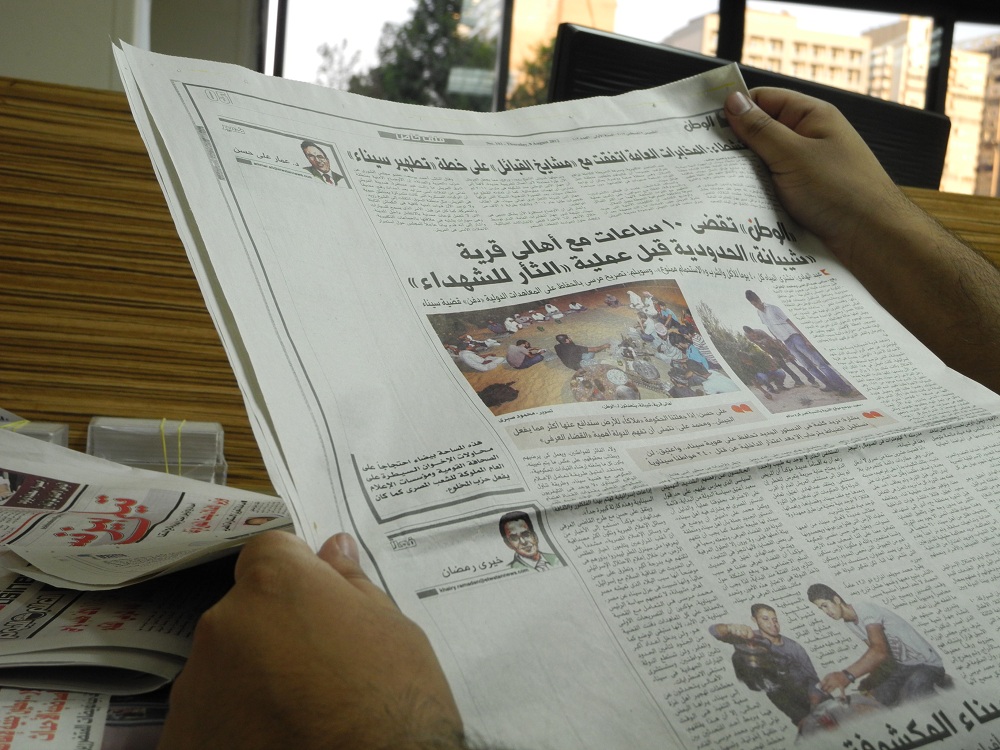CAIRO: Fears of inflationary pressure and soaring food prices have lowered the way Egyptians perceive “quality of life, according to seasonally adjusted data revealed by MasterCard advisors at a press conference on Sunday.
Amid strong growth rates, “inflation remains a problem in Egypt, and consumers [wonder] whether or not benefits of growth rates are trickling down to society or [whether] they are only for elites, said Nasser Saidi, chief economist of the Dubai International Financial Center (DIFC).
He explained that higher inflation rates in Egypt are mainly caused by a rise in food prices – particularly essential commodities. The results are loss of purchasing power, high pressure to adjust nominal salaries, and a low perception on “quality of life.
MasterCard revealed its findings on the same day Central Agency for Public Mobilization and Statistics (CAPMAS) stated that higher food prices pushed Egypt s consumer price index for urban areas up 10.5 percent in the year to January 2008, from 6.9 percent in the year to December 2007.
The government statistics agency said Sunday consumer prices throughout the country rose 11.5 percent in the year to January, compared with 7 percent to November.
“[Egyptian] consumers no longer perceive ‘quality of life’ as positively as they used to, Saidi added.
MasterCard Worldwide released findings of its Index of Consumer Confidence, a bi-annual survey that measures consumer sentiment and perception on economic conditions within select markets in South Asia, the Middle East, and Africa. In Egypt, research on the latest survey was conducted last October among a sample of 600 respondents from Egypt’s banked population aged 18-64.
The 2008 Index, which measures sentiment on market expectations for the first six months of the year, is based on responses to five economic factors: employment, economy, regular income, stock market and quality of life.
“When consumers are confident, they are spending, and that helps [boost] the economy. And when consumers are not confident, they are not buying and not investing, said Denzil Lawson, general manager of MasterCard Worldwide for the Middle East and the Levant. “[Hence], consumer behavior drives the economy.
In Egypt, the consumer confidence index this year landed at 65.9 percent, reflecting a dramatic decline from the previous all-time record high of 94.3 percent. The current slide was mainly triggered by low perception of the “quality of life, which measures quality of services citizens receive from infrastructure services and traffic to education and healthcare.
“Egypt [being] at 65.9 percent – that is still a high figure. [People] should not read a lot of negativity at 65 percent. It means that people have done a reality check, but things are still good compared to other [emerging countries], Lawson explained.
On the other hand, Egypt’s score is relatively low compared to countries such as Kuwait (93.3 percent), Saudi Arabia (92.2 percent), India (86.6 percent), South Africa (83.7 percent) and the United Arab Emirates (78.5 percent). The only exception is Lebanon’s at (38.7 percent).
“The research was [conducted during the time when] the US sub-prime crisis was starting to crystallize in a fixed way, when dramatic drops in the US Dollar [took place], when oil prices were at record highs surpassing $100 per barrel, and when political instability in Lebanon [as well as] spiraling food prices in Egypt lingered, Lawson added.
The survey findings were announced two days after the Egypt s central bank raised its key overnight interest rates – the first rate change in over a year – due to higher food prices and inflationary pressure from surging economic growth.
The bank raised Friday its deposit rate to 9 percent and its lending rate to 11 percent. The 25 basis point rise occurred the same week the country s cabinet said January inflation had jumped to 10.5 percent, reversing a steady decline since September.
Despite a growing inflation rate – estimated to hit around 12 percent this year – Saidi believes it would not persist in the year 2008/09 and forecasts a downward trend in the future.
A lot of the current inflationary rate, he pointed out, has resulted from a weak US dollar, which affected commodity prices, especially food prices. However, as Egypt is a net importer of these commodities, Saidi predicts that prices of these commodities will fall, as the US dollar continues to depreciate against major currencies due to slow growth of the US economy.

